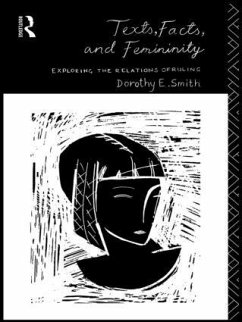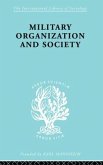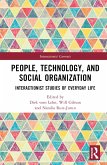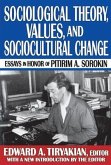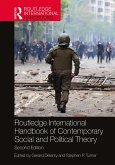'A crucial book for feminists, for sociology and the new "political anthropological historical school". It informs us how we are differently "situated" in and through social relations, which texts and images mediate, organise and construct.' Philip Corrigan, Professor of Applied Sociology, Exeter University
Dorothy E. Smith is Professor of Sociology in Education, Ontario Institute for Studies in Education, Toronto. She is the author of The Everyday World as Problematic: A Feminist Sociology.
Dorothy E. Smith is Professor of Sociology in Education, Ontario Institute for Studies in Education, Toronto. She is the author of The Everyday World as Problematic: A Feminist Sociology.
`There are several essays which are destined to become classics of their kind ...' - Times Higher Education Supplement
`A crucial book for feminists, for sociology and the new "political anthropological historical school". It informs us how we are differently "situated" in and through social relations, which texts and images mediate, organise and construct.' - Philip Corrigan, co-author of The Great Arch
`There are several essays which are destined to become classics of their kind ...' - THES
`A crucial book for feminists, for sociology and the new "political anthropological historical school". It informs us how we are differently "situated" in and through social relations, which texts and images mediate, organise and construct.' - Philip Corrigan, Exeter University
`A crucial book for feminists, for sociology and the new "political anthropological historical school". It informs us how we are differently "situated" in and through social relations, which texts and images mediate, organise and construct.' - Philip Corrigan, co-author of The Great Arch
`There are several essays which are destined to become classics of their kind ...' - THES
`A crucial book for feminists, for sociology and the new "political anthropological historical school". It informs us how we are differently "situated" in and through social relations, which texts and images mediate, organise and construct.' - Philip Corrigan, Exeter University
`There are several essays which are destined to become classics of their kind ...' - Times Higher Education Supplement
`A crucial book for feminists, for sociology and the new "political anthropological historical school". It informs us how we are differently "situated" in and through social relations, which texts and images mediate, organise and construct.' - Philip Corrigan, co-author of The Great Arch
`There are several essays which are destined to become classics of their kind ...' - THES
`A crucial book for feminists, for sociology and the new "political anthropological historical school". It informs us how we are differently "situated" in and through social relations, which texts and images mediate, organise and construct.' - Philip Corrigan, Exeter University
`A crucial book for feminists, for sociology and the new "political anthropological historical school". It informs us how we are differently "situated" in and through social relations, which texts and images mediate, organise and construct.' - Philip Corrigan, co-author of The Great Arch
`There are several essays which are destined to become classics of their kind ...' - THES
`A crucial book for feminists, for sociology and the new "political anthropological historical school". It informs us how we are differently "situated" in and through social relations, which texts and images mediate, organise and construct.' - Philip Corrigan, Exeter University

